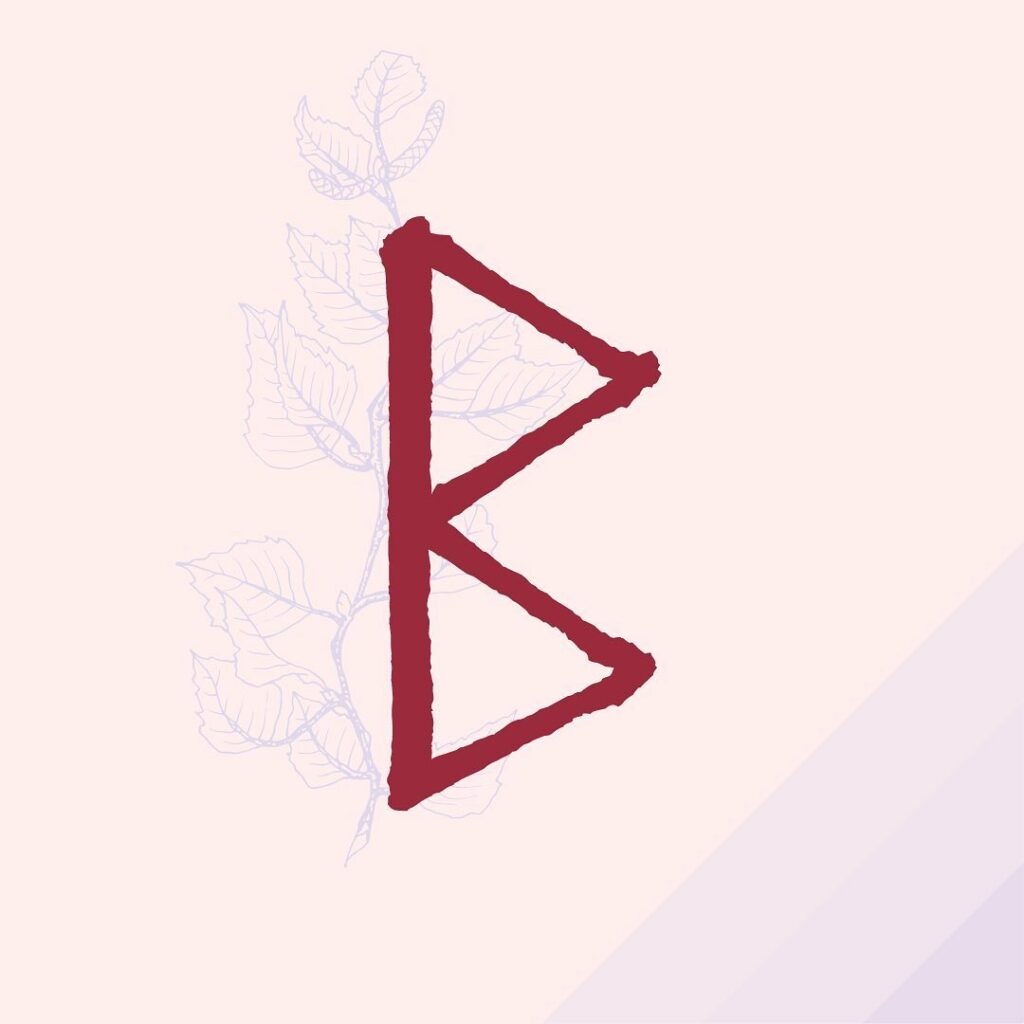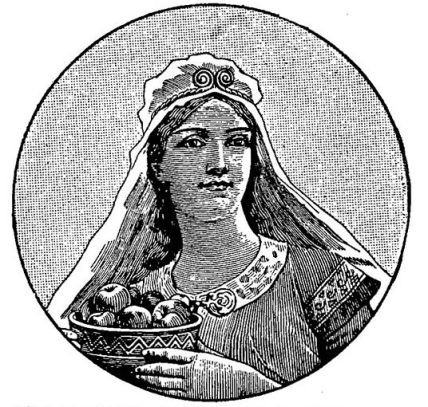Imagine, if you will, a time when the Norse gods roamed the earth, and the runes were their language. Among these runes, one stands out – Berkanan (also known as Berkano), a symbol of growth and fertility. It’s a part of the Elder Futhark, an ancient runic alphabet that the Vikings used not just for communication, but also for magic and divination.
Now, let’s delve into the world of the Berkanan rune. Picture a Viking, carving this rune into a piece of wood, invoking its power. This is our journey, a journey into the heart of the Viking Age, exploring the mysteries of the fertility rune.
Berkanan: Background and Description
The Elder Futhark, the oldest form of the runic alphabets, dates back to the 1st century. Evidence of its use can be found on artifacts like the Kylver Stone from Gotland, Sweden. The rune is the eighteenth in this ancient alphabet, nestled between Tiwaz, the rune of justice, and Ehwaz, the rune of trust. Its name, derived from the Old Norse word ‘bjarkan’, means ‘birch’.
As the Elder Futhark evolved into the Younger Futhark, around the 8th century, the number of runes was reduced, but Berkanan retained its place. Its enduring presence speaks volumes about its significance in the Viking Age. The birch tree, after all, was a symbol of new beginnings and fertility.
Graphical Representation

The Berkanan rune is a simple yet powerful symbol. Picture a vertical line, with two leaves, or triangular flags, branching off towards the right, like the branches of a birch tree. This is the runes’ very essence, a symbol that captures the vitality and growth of nature.
Over time, variations of the Berkanan rune have appeared. Also, famously the rune, in it’s Younger Futhark guise, has been used as part of the symbol for Bluetooth, combined with the Younger Futhark rune Hagalaz . Despite these variations, the core symbolism remains unchanged – it is a symbol of growth and fertility.
Phonetic Value
In the Proto-Germanic language, the Berkanan rune represented the ‘b’ sound. As the Germanic languages evolved, this phonetic value remained consistent. Whether in Old Norse, Old English, or Old High German, Berkanan continued to be associated with the ‘b’ sound, further cementing its connection to ‘bjarkan’, the birch.
Symbolic Meaning of the Berkanan Rune
The Berkanan rune is a symbol of growth, fertility, and new beginnings. Its Proto-Germanic translation, ‘birch’, encapsulates its essence perfectly. The birch tree, after all, is a symbol of renewal and rebirth. It’s no surprise then that Berkanan is often associated with the goddess of youth, Idunn.

In the Viking Age, the birch tree was more than just a tree. It was a symbol of the cycle of life and death, a reminder of the constant change in nature. The Berkanan rune, with its connection to the birch, reflects these deeply ingrained cultural beliefs.
The Aett and its Symbolism
The rune belongs to Tyr’s aett, one of the three groups of runes in the Elder Futhark. Each aett is associated with a specific Norse god or goddess, and in this case, it’s the brave warrior, Tyr.
Tyr’s aett is a collection of runes that embody themes of courage, justice, and balance, much like Tyr himself, the god of law and heroic glory. The Berkanan rune, with its symbolism of growth and renewal, fits perfectly within this aett. Moreover, it’s a symbol of rebirth, much like Tyr’s self-sacrifice for the greater good.
The aett system is a crucial part of understanding the Elder Futhark. It’s not just about individual runes, but how they interact and relate to each other within their aett. The Berkanan rune, as part of Tyr’s aett, carries the warrior god’s spirit of sacrifice and renewal, inspiring us to embrace change and growth.
Elder Futhark Quiz
Do you want to test your knowledge of Elder Futhark runes? Then this quiz is perfect for you!
Don’t forget to play our other games as well!
Berkanan Used in Divination and Magic
Now, I must confess, I’m not one for divination or magic. But I can’t deny the fascination these practices hold for many. The Berkanan rune, in runic divination, is often seen as a positive sign, a symbol of growth and new beginnings.
Historically, runes were used in magic and spellwork, and Berkanan was no exception. Its association with the birch tree made it a powerful symbol for invoking growth, renewal, and fertility. While we can’t say for certain how the Vikings used this particular rune in their spells, its symbolic meaning offers some intriguing possibilities.
Berkano in the Younger Futhark – The Unaltered Growth
During the transformation of the Elder Futhark into the Younger Futhark around the 7th and 8th centuries, Berkano, representing growth or birch, stood unaltered. It continues to symbolize the ‘b’ sound, signifying the unchanging nature of growth, renewal, and fertility. In the Younger Futhark, it is known as bjarkan.
Frequently Asked Questions
The Berkanan rune symbolizes growth and fertility as well as new beginnings.
The Berkanan rune belongs to Tyr’s aett in the Elder Futhark.
In the Proto-Germanic language, the Berkanan rune represented the ‘b’ sound.
Featured Image Credit: BK, Public domain, via Wikimedia Commons
